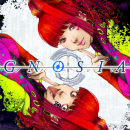JackHandy said:
The only thing I'm curious about is which Nintendo is going to emerge. The post-NES Nintendo where they simply take what works and add to it? Or the post-Gamecube Nintendo which attempted to redefine what Nintendo consoles were all about? Because at first glance, you'd think the former, since the Switch was NES-level successful. But then the Wii-U comes to mind (the Wii won its gen), and it all goes out of the window, and you're left with more questions than answers. |
We are in an interesting spot. Switch is only exceeded by the DS at this point as far as hardware sales go. And it's not crazy at all to think it could beat the DS, even if I don't think it will.
In the home console front you have a lot of interesting approaches. The SNES had a similar approach to the NES, but with a generational leap in specs and a better controller. The N64 is better than the PS1 and Saturn in specs (while of course not being a generation ahead of them) and way above an SNES. But the N64 was held back big time by bizarre and expensive cartridges. The load times were better for games, but the storage space was laughable. Not to mention a bizarre three-pronged controller with no X or Y buttons, and only one trigger. Nintendo's last time giving a darn about specs in the home console market is of course the GameCube. But again, they shot themselves in the foot with the media format used. The miniDVD capped out at 1.5 GB, and even 2 of them still fell short of single-layer and double-layer discs used by Sony and Microsoft. The only medium choice dumber than this in the sixth generation was using specialized CDs for the Dreamcast that capped out at a low 1 GB. But as we know, the Dreamcast hardware was dead before the GCN and Xbox even launched.
Then comes the Wii and onward approach where Nintendo stopped caring about specs. The Wii had some great games but is very weak. The Wii U beat the next systems to the market by a year but did nothing with the head start. The Wii U would've been more successful with weak specs if it was easier to develop for and had more popular Nintendo games than it did. While the Switch is not a full generational leap from the Wii U, it is much easier to develop for and thankfully has double the RAM (thank you Capcom and other devs) and some other improved specs.
It's time for another generational leap in specs for a Nintendo system, which could happen regardless of whether the system is full of gimmicks or not. In handheld mode, the weakest I would like the Switch 2 to perform is very close to an Xbox One. And in docked mode, I'm hoping for at least somewhere between PS4 and PS4 Pro. If Nintendo puts a lot of heft into their dock, there's no reason the dock of the Switch 2 can't boost the system to around Series S performance. And while this wouldn't be particularly cheap, I don't see why Nintendo would have to charge above $450 for the next system. What would the production costs be with a tablet and a dock this powerful? $350-$400? I think Nintendo would be able to break even on each unit sold even if they don't have a large profit margin.
To me, a few of the worst-case scenarios for the next Nintendo system is...
-Splitting Nintendo in two once more and making a home console and handheld. Nintendo home consoles have a spotty sales record (the N64 underperformed, the GameCube straddled the line between an outright failure and a slight success, and the Wii U bombed), and I don't want to buy two systems again every gen to play their games.
-Making another hybrid but filling it with some kind of motion or cheap VR gimmick and having the system in docked mode either barely match an Xbox One or even perform still worse than an Xbox One. And add in no backwards compatibility for an extra OOF.
Lifetime Sales Predictions
Switch: 151 million (was 73, then 96, then 113 million, then 125 million, then 144 million)
PS5: 115 million (was 105 million) Xbox Series S/X: 57 million (was 60 million, then 67 million)
PS4: 120 mil (was 100 then 130 million, then 122 million) Xbox One: 51 mil (was 50 then 55 mil)
3DS: 75.5 mil (was 73, then 77 million)
"Let go your earthly tether, enter the void, empty and become wind." - Guru Laghima
























































